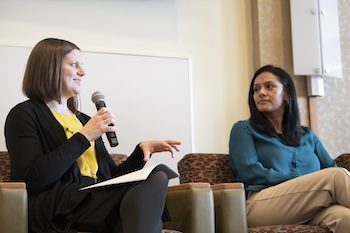By David Beaudouin
 What’s the most common form of violence in the world today? Tragically, it occurs between two individuals supposedly in a loving relationship. In the United States and around the world, intimate partner violence (IPV) is a critical issue affecting not only the long-term health of affected women, men, and their families, but the economy as well.
What’s the most common form of violence in the world today? Tragically, it occurs between two individuals supposedly in a loving relationship. In the United States and around the world, intimate partner violence (IPV) is a critical issue affecting not only the long-term health of affected women, men, and their families, but the economy as well.
According to the National Coalition Against Domestic Violence (NCADV), more than 10 million adults in the U.S. experience domestic violence annually. If aggregated, this statistic means that there is an IPV incident every three seconds. Additionally, from 2016 through 2018, the number of IPV incidents in the U.S. increased by 42 percent.
